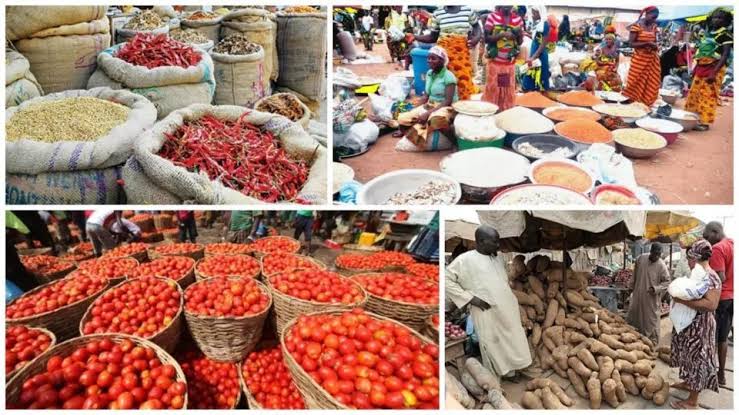Over a month ago, President Bola Tinubu made a major announcement regarding food imports.
According to him, the government would immediately remove Customs Duty and Value Added Tax (VAT) on food imports, making it free.
People saw this decision as a crucial step to address rising food prices and shortages across Nigeria.

This free duty import policy change is expected to ease the burden on Nigerians by lowering food costs.
However, despite the President’s directive, neither the Federal Ministry of Finance nor the Nigerian Customs Service (NCS) has acted on it.
In the heart of Nigeria’s political scene, a significant delay was unfolding, tangled in a web of bureaucratic red tape.
According to Vanguard, this delay in implementation of the free food import was a major concern.
General Christopher Musa, Chief of Defence Staff, recently met with security agency heads and Service Chiefs.
During this meeting, Comptroller General of the Nigerian Customs Service, Bashir Adewale, delivered some troubling news.
He revealed that the Finance Ministry was still working on finalising the policy details.
Adewale’s wants Nigerians to be patient, but this did little to ease the public’s frustration.
His assurance that “a lot is going on to address these issues” was not enough to provide comfort.
The delay was especially concerning, as more than two months had passed since the President announced the emergency measure.
The government intended the measure to last only five months.
In a situation that demanded urgent action, it was clear that officials needed to speed up their efforts.
The food crisis and rising prices made it crucial to prioritize this issue and overcome bureaucratic obstacles.
However, there were rising fears that the slow progress might be due to the government’s push for increased revenue.
High Cost Of Food And Inflation
The gap between government actions and the everyday struggles of ordinary Nigerians was becoming glaringly obvious.
The economic strain was worsening, driven by rising fuel prices that had, in turn, pushed up food prices and inflation.
Read Also; Import Duties Waiver On Rice, Other Goods Starts Next Week – FG
The President failed to fulfill his promise to provide rice at a subsidised price of ₦40,000 per 50kg.
This left many Nigerians in severe economic hardship.
This situation had the potential to spark further unrest.
The recent #EndBadGovernance protests led to treason charges against some participants.
However, this might seem minor compared to the potential backlash if conditions didn’t improve.
New Protests Coming Up In October
People were already discussing plans for new protests in October, highlighting the deepening discontent.
The government’s response to protests and its overall policy approach were not painting a positive picture.
Intimidation of activists and weak policy implementation only fueled the perception of governmental indifference to the citizens’ plight.
The Federal Ministry of Finance, led by Minister Olawale Edun, needed to act decisively to address the growing crisis.
Likewise, the Nigerian Customs Service, under Wale Adeniyi, also had to take action.
Accelerating the zero-duty policy on food imports could help alleviate immediate hardships and improve the government’s credibility.
Swift and effective action was essential to both address the current economic challenges and restore public trust.

